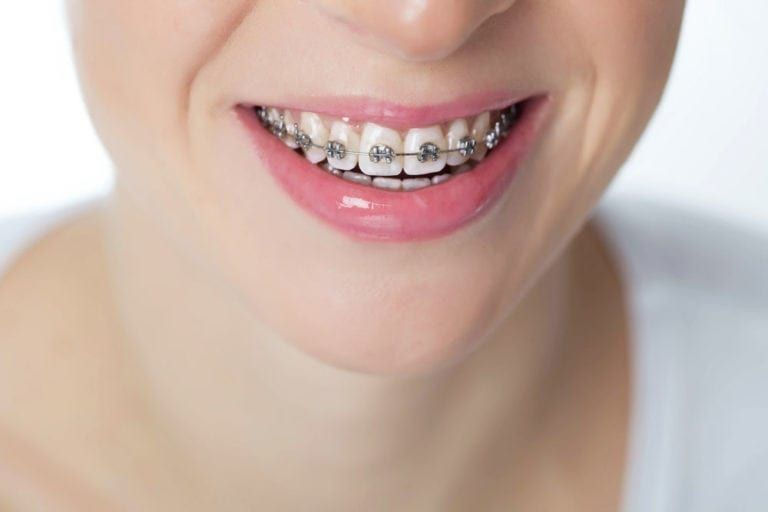Denture-Friendly Diet: What to Eat and Avoid with Your New Smile
- dclinicdubai
- Jan 25
- 3 min read
Adapting to life with dentures can feel like a major change, especially when it comes to eating. Your new smile not only enhances your appearance but also plays a vital role in chewing and speaking. If you’ve recently opted for teeth dentures in Dubai, it’s essential to understand how to manage your diet during the adjustment phase. Let’s dive into the details of what you should and shouldn’t eat to maintain a healthy, comfortable experience with your dentures.

Why Diet Matters with Dentures:
Dentures are a transformative solution for replacing missing teeth, but they come with a learning curve. Choosing the right foods and avoiding potential irritants can:
Improve comfort during the initial adjustment period.
Prevent damage to your dentures.
Ensure proper oral hygiene and gum health.
Enhance your overall eating experience.
Best Foods to Eat with New Dentures:
During the initial days, your gums and jaw might feel tender as they adjust to your new dentures. It’s crucial to start with foods that are soft, nutritious, and easy to chew. Here are some ideal options:
Soft Fruits and Vegetables:
Bananas, peaches, and ripe avocados are gentle on your gums.
Steamed or boiled carrots, zucchini, and spinach offer essential nutrients without causing discomfort.
Protein-Rich Options:
Scrambled eggs or omelets are easy to chew and packed with protein.
Fish like salmon or cod are flaky, tender, and rich in omega-3 fatty acids.
Soft tofu or cottage cheese for a protein boost.
Whole Grains and Carbs:
Mashed potatoes or sweet potatoes provide energy and are gentle on your mouth.
Oatmeal, porridge, or cream of wheat make excellent breakfast choices.
Soups and Broths:
Vegetable or chicken soups are nutrient-rich and soothing.
Avoid soups with large, chewy chunks that could strain your dentures.
Foods to Avoid with Dentures:
Certain foods can cause discomfort, damage your dentures, or get stuck between them. Here are the main culprits to steer clear of:
Sticky and Chewy Foods:
Caramels, toffees, and gummy candies can pull on your dentures.
Chewing gum is another no-go as it can stick to the dentures.
Hard or Crunchy Items:
Nuts, seeds, and popcorn kernels can crack your dentures or irritate your gums.
Raw vegetables like carrots and celery should be softened by steaming or boiling.
Tough Meats:
Steaks and ribs require excessive chewing and can dislodge your dentures.
Opt for ground or slow-cooked meat alternatives instead.
Foods with Small Particles:
Sesame seeds, chia seeds, and granola can lodge under your dentures, causing irritation.
Be cautious with bread with hard crusts as crumbs might get trapped.
Tips for Adjusting to Your New Diet:
Switching to a denture-friendly diet doesn’t mean sacrificing flavor or variety. Here are some practical tips to make the transition smoother:
Cut Food into Small Pieces:
Slicing fruits, vegetables, and meats into bite-sized pieces can make chewing easier.
Chew Slowly and Evenly:
Use both sides of your mouth to evenly distribute pressure and prevent denture slipping.
Stay Hydrated:
Drinking water during meals can help wash away food particles and prevent dry mouth.
Experiment with Cooking Methods:
Steaming, boiling, or baking can soften tough foods without compromising flavor.
Maintaining Your Dentures:
Proper maintenance is essential for the longevity of your dentures and the health of your gums. Follow these care tips to complement your diet:
Rinse Your Dentures After Meals: To remove food particles and prevent bacterial buildup.
Brush Daily: Use a soft-bristled toothbrush and denture-specific cleanser.
Avoid Abrasive Cleaners: Harsh chemicals can damage the denture material.
Soak Overnight: Keep your dentures in water or a denture solution to maintain their shape.
Schedule Regular Check-Ups: Visit your dentist in Dubai for periodic adjustments and professional cleaning.
When to Seek Professional Help:
If you experience persistent discomfort or difficulty eating despite following these dietary guidelines, consult your dentist. Common issues include:
Sore spots on your gums caused by ill-fitting dentures.
Excessive movement or slipping during meals.
Difficulty chewing even soft foods.
Final Thoughts:
Adapting to teeth dentures in Dubai doesn’t mean giving up on enjoying your favorite foods. By making mindful dietary choices and following proper denture care, you can savor meals while maintaining your new smile. Remember, the initial adjustment phase is temporary, and with time, you’ll regain confidence in eating a variety of foods. For personalized guidance, always consult your dentist to ensure your dentures fit comfortably and meet your needs.
Readmore about: Full vs. Partial Dentures: Understanding the Differences


Comments